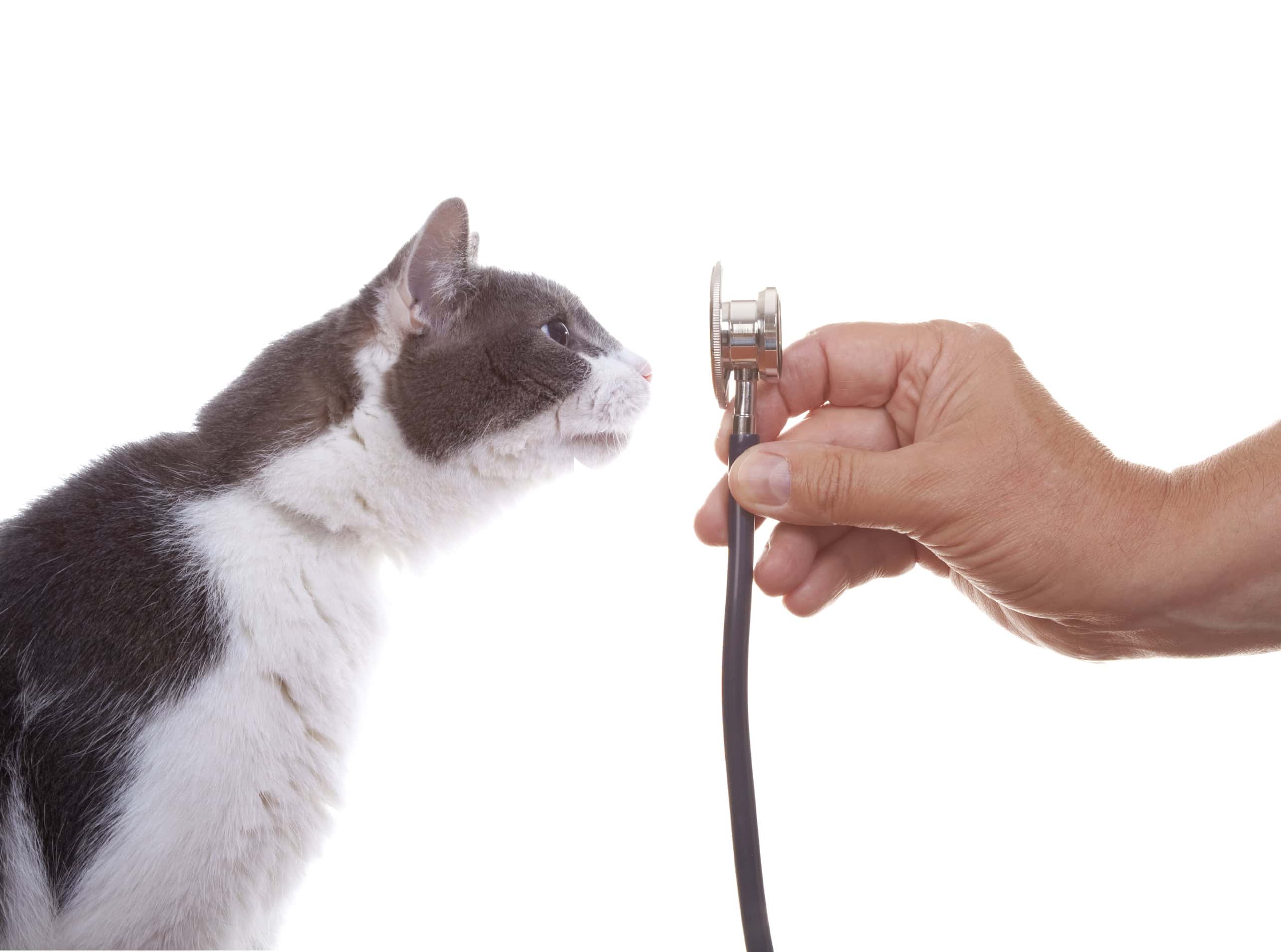A Spotlight on Feline Health: Determining When a Cat is Sick
 Most cats have an air of mystery about them. They are subtle in comparison to our “in your face” canine companions, and in many cases, they enjoy their privacy. And, while we might appreciate their low key presence, this subtly can sometimes lend itself to masked symptoms when health problems arise.
Most cats have an air of mystery about them. They are subtle in comparison to our “in your face” canine companions, and in many cases, they enjoy their privacy. And, while we might appreciate their low key presence, this subtly can sometimes lend itself to masked symptoms when health problems arise.
Because pets often become less responsive when they are experiencing discomfort, it is hard to determine whether there is the presence of an illness or if your cat is just being a cat. The question remains, “How do you tell if your cat is sick?”
Regular Veterinary Examinations
Before we get into the typical signs of an ill feline, it is important to note the importance of wellness exams. These annual exams include a thorough head to tail physical, along with important screenings, blood work, and other diagnostics. Take advantage of our invisible cat discount* if you haven’t brought your pet in yet for their annual exam.
Given what we know about elusive feline behavior, your cat’s health will be better maintained through annual (or biannual, for cats over the age of 6) preventive care.
Warning Signs When a Cat is Sick
Now that you have your cat’s wellness examinations marked on the calendar, there are some actions that can be taken at home.
As the caregiver, you are likely to notice changes with your feline companion – whether those changes entail loss of appetite, lethargy, or something that simply seems “off”. We recommend keeping a weekly pet journal to note such changes and any corresponding events or situations at home that are out of the ordinary. This information is incredibly useful, should your cat begin to display signs of illness or distress.
While there are no strict set of symptoms when a cat may be sick, there are definitely some red flag warnings that should prompt you to see your veterinarian.
- Foul or sweet smelling breath – Changes in odor could indicate a number of conditions, from periodontal disease to diabetes.
- Lethargy and increased sleep – If your usually energetic cat has stopped wanting to play or has changed his sleeping pattern (which could even be restlessness and lack of sleep), it is a good idea to schedule an appointment.
- Decreased appetite or gorging – A sudden drop in weight or decreased appetite can coincide with several health problems – from emergency situations, like poisoning, to cancer. Likewise, a sudden increase in appetite can also indicate an underlying illness.
- Clinginess or hiding – Often referred to as “Velcro kitties”, cats who are in pain or sick will sometimes become very clingy. However, chronic hiding may be symptomatic of an illness or fear/anxiety.
- Dull, unkempt coat – Cats are typically fastidious, grooming themselves several times a day. So, when your cat suddenly stops cleaning himself, or you notice a dull, dry appearance to a once shiny, clean coat, consider this a warning sign.
- Increased “accidents” – For the most part, cats are habitual in their litter box behavior, and generally only having accidents when under stress, experiencing an illness, or there has been a change in the choice of litter (or the box is dirty).
- Yowling or vocalization – It’s unusual to hear your cat consistently “talk” or yowl unless he or she is in pain, distress, or discomfort.
While it can sometimes be hard to discern when a cat is ill or changes in health have occurred, the above mentioned changes should be looked into. Other signs of illness include coughing, sneezing, vomiting, and diarrhea.
To play it safe, and make an appointment for your feline friend as soon as changes are noted. In the best case scenarios: you will have the peace of mind that your cat is healthy or will have more treatment options, since your swift action was instrumental in early detection.
*Invisible Cat Discount: 50% ($19.50 savings) off exam if it has been more than a year since we have seen the cat and 100 % (39.00 savings) off exam if we have never seen the cat before.

